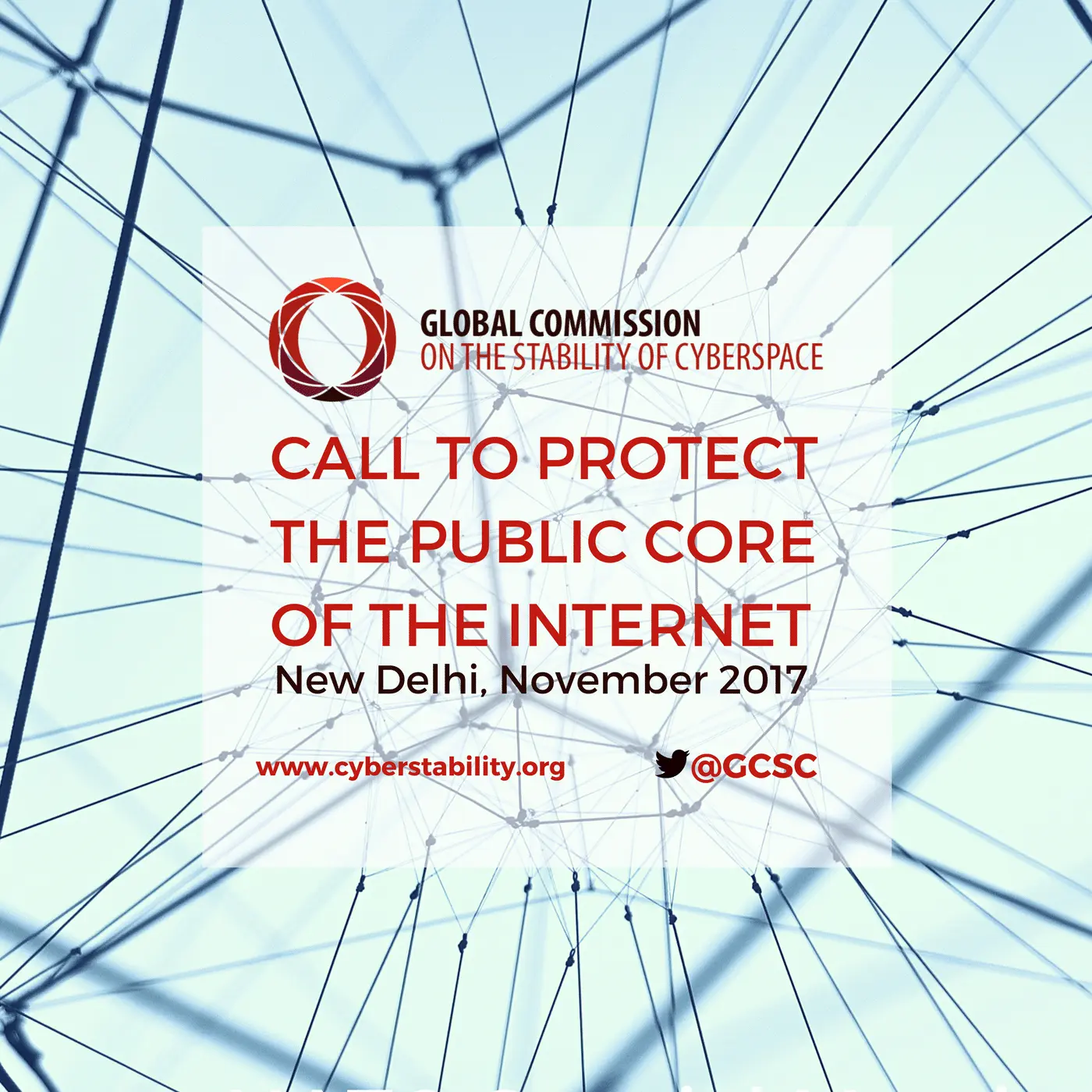The Global Commission on the Stability of Cyberspace (GCSC) and The Hague Centre for Strategic Studies are pleased to invite you to its IGF session “The Protection of the Public Core of the Internet: from formulation to implementation.”
German Chancellor Angela Merkel stressed the need to protect the public core of the Internet in her opening speech at the 2019 Internet Governance Forum in Berlin. While the idea of protecting the core Internet functions has a longer history, the notion only recently became the subject of a norm proposal by the Global Commission on the Stability of Cyberspace (GCSC). This norm has since been accepted and adopted by many institutions, including its inclusion in the Paris Call for Trust and Security in Cyberspace and its adoption into European Union legislation through the EU Cybersecurity Act.
Recent breaches of the DNS, such as ‘DNSpionage’ and the Netnod attack, highlight the vulnerabilities within and the international repercussions of exploiting critical Internet infrastructure. Meanwhile, the global open Internet and its underlying core principles increasingly face the threat of digital authoritarianism in which certain governments assert more control over the governance of the Internet. Responses to threats against the core Internet protocols and functions have required the cooperation of states, the private sector and civil society groups, as the infrastructure, services, and products underpinning it are privately-owned and governed and maintained by a community made up of civil society groups.
This session will give an overview of recent developments and explore ways in which to advance a concerted multistakeholder approach that embeds the protection of the public core of the Internet. It will first examine the need to further define the concept, building on the definition of the GCSC, and explore the preferred end-goal of this norm and avenues for calling out norm violations, as well as what contributions civil society can make towards defining, monitoring and protecting the public core of the Internet.
Speakers
Vint Cerf, Vice President and Chief Internet Evangelist at Google.
Jeff Moss, Founder and Creator of Black Hat and DEF CON
Wolfgang Kleinwächter, Professor Emeritus, University of Aarhus, former member on the ICANN Board of Directors, and former Special Ambassador of the NETMundial Initiative
Marietje Schaake, International Director of Policy at Stanford’s Cyber Policy Center, President of the CyberPeace institute. Former member of European Parliament.
Anriette Esterhuysen, Director of Global Policy and Strategy, Association for Progressive Communications.
Samir Saran, President of the Observer Research Foundation and Chair of CyFy.
Nathalie Jaarsma, Ambassador at-Large for Security Policy and Cyber, Kingdom of the Netherlands.
Serge Droz, Chair, Forum of Incident Response and Security Teams (FIRST).
Sheetal Kumar, Senior Programme Lead, Global Partners Digital.
Moderated by Alexander Klimburg, Director of the Global Commission on the Stability of Cyberspace Initiative and Secretariat


